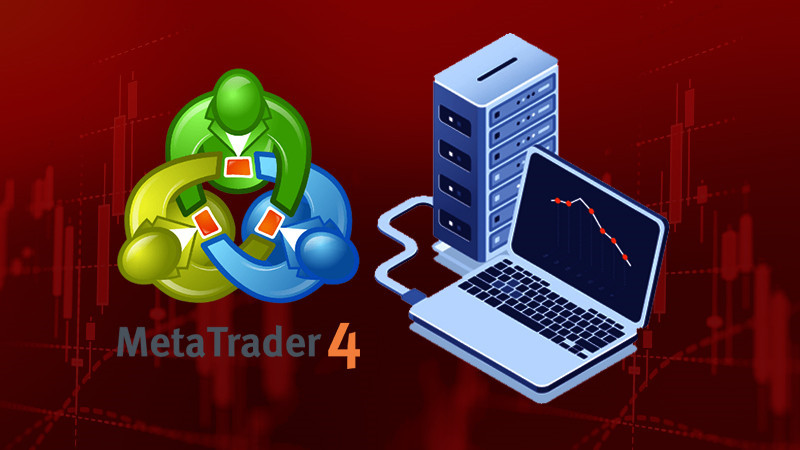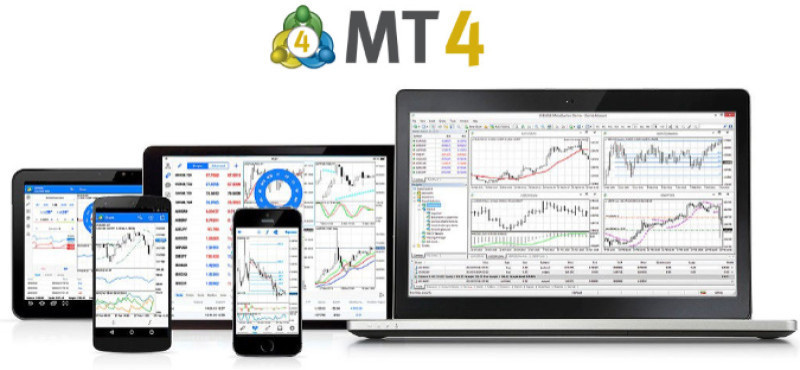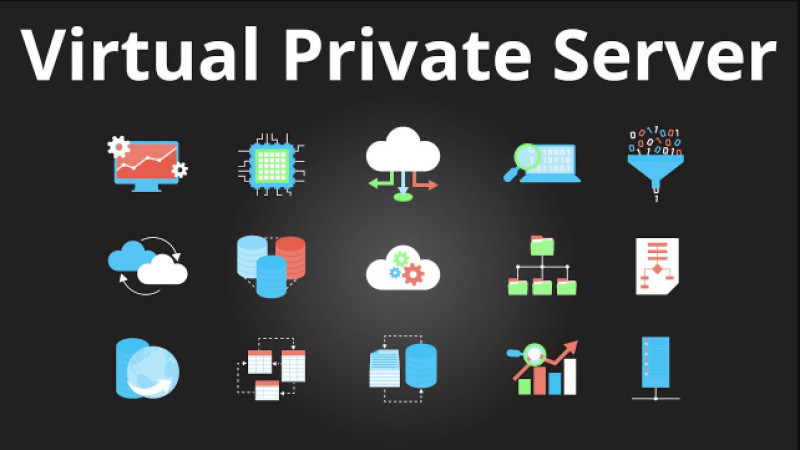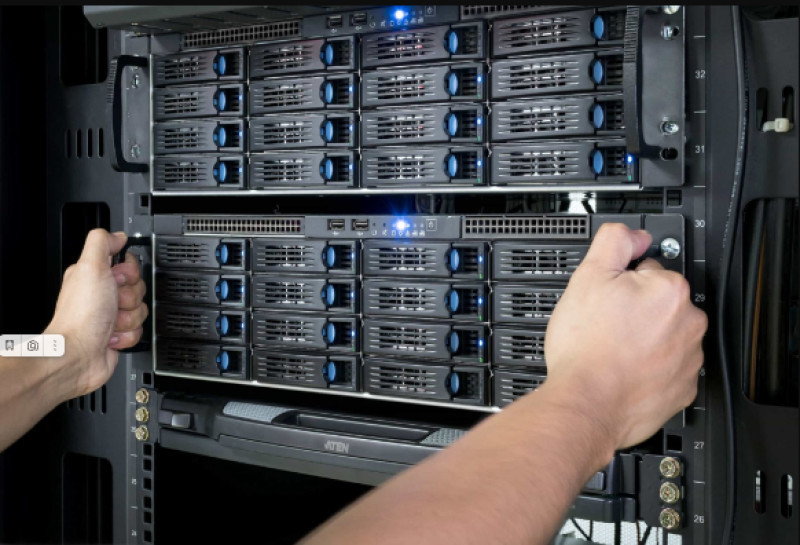
Today's technology is rapidly evolving, and the financial markets are not left behind. We've moved from phone or paper-based transactions to electronic trading, where every second can mean millions of dollars. In this fast-paced environment, speed, reliability, and continuous operation are crucial. This is where the use of a Virtual Private Server (VPS) becomes essential.
Take a moment to think about the trading world. Countless traders globally analyze charts, follow news, and make buy or sell decisions. Many depend on automated systems and advisors to boost profits and reduce risks. But imagine if your system crashes or loses connection due to power or internet issues, especially during high market volatility. The impact could be severe.
Why is VPS on MT4 critical in this scenario? Let's start with understanding MT4. MetaTrader 4 is a long-standing platform in retail forex trading. It equips traders with everything from detailed market analysis to developing and testing complex algorithmic strategies. However, MT4 VPS is vulnerable to the risks of your home computer or internet connection failures.
This is where a VPS comes into play. A Virtual Private Server is essentially your personal, dedicated server that operates 24/7, ensuring the uninterrupted functioning of all your applications. Imagine it as your home computer, but much more powerful and reliable, housed in a specialized data center with multiple backups for electricity and internet connection.
Understanding the importance of VPS in modern trading is one thing, but using it effectively is another. VPS, being a remote server, requires more than basic computer skills for setup and management. But don't be intimidated. Most VPS providers offer comprehensive guides and support services to help you every step of the way.
In summary, in a world where technology plays a critical role in our everyday lives and the forex market is increasingly dynamic, a Virtual Private Server is a key to balancing success and potential risks. It's an investment in your future, ensuring your trading strategy runs uninterrupted.
Having understood the significance of this technology, let's explore MetaTrader 4 in more detail, including the pros and cons of using a VPS, and importantly, how to choose and install the right VPS for seamless trading.
MetaTrader 4
When it comes to Forex retail trading platforms, MetaTrader 4 (MT4) undoubtedly leads the pack. It's a platform that has shaped the industry and set the standards against which many other platforms and technologies are still measured. But what makes MT4 so special? And why does it remain the top choice for many traders despite the emergence of new platforms and technologies?

History and Development
MetaTrader 4, developed by MetaQuotes Software Corp. and released in 2005, was designed from the outset to provide traders with a reliable, powerful, and user-friendly platform for trading, market analysis, and developing their own trading strategies.
Key Features
Trading Instruments: MT4 VPS offers a broad range of trading instruments, including currency pairs, indices, commodities, and more, allowing traders to diversify their portfolio and explore opportunities across different markets.
Technical Analysis: The platform is equipped with numerous indicators and tools for technical analysis, enabling traders to analyze the market over various timeframes, from minutes to months.
Automated Trading: A key advantage of MT4 is the ability to create, test, and implement automated trading systems known as Expert Advisors (EAs). These systems allow traders to automate their strategies, minimizing the human factor.
MQL4: This is MT4's proprietary programming language, enabling the creation of custom indicators, advisors, and scripts. It allows traders and programmers to develop tailored tools and solutions for their needs.
Graphical Tools: MT4 VPS offers a variety of graphical tools like trend lines, channels, Fibonacci, and more, used by traders for market analysis and prediction.
Intuitive interface and customization
One of the key aspects of MT4's popularity is its ease of use and flexibility. The platform's interface is intuitive, even for beginners. Traders can customize their workspace according to their preferences, choosing necessary indicators, color schemes, and other settings.
Security and reliability
Security is another crucial aspect of MT4. The platform offers a high level of data encryption, ensuring transaction confidentiality and protection from potential attacks.
Community and resources
Over time, a vast community has formed around MT4, creating numerous additional indicators, advisors, and resources. On the official website and various forums, one can find both free and paid solutions for any need.
Conclusion
MetaTrader 4 remains one of the most preferred tools for traders worldwide. It combines powerful features, flexibility, security, and extensive community support. Despite the advent of new platforms and technologies, MT4 continues to hold its ground, providing traders with everything they need for successful trading.
Virtual Private Server
A Virtual Private Server (VPS) has become an indispensable tool in various industries, including financial market trading. But what exactly is a VPS, how does it work, and why is it so crucial for traders? Let's delve deeper into the specifics of VPS on MT4.

Basics of VPS
A VPS is a virtualized server that emulates a physical server. Essentially, it's a dedicated virtual space on a physical server, operating independently with its own resources and operating system. The key feature of a VPS is that, although multiple servers may reside on a single physical device, each functions independently from the others.
How it works
VPS technology is based on virtualization, where a physical server is divided into several virtual servers using specialized software. Each VPS has its own disk space, RAM, CPU time, etc.
Application in trading
Traders and investors use VPS to ensure uninterrupted access to trading platforms. This is particularly relevant for automated trading, where continuous operation of advisors or algorithmic systems without interruptions or failures is necessary. With a VPS, traders can be confident that their strategies will operate 24/7, even if there's a power or internet outage at home.
Advantages of VPS for traders
Uninterrupted operation: As mentioned, a primary advantage is the ability to trade continuously. With a VPS, your trading platform is accessible at any time, regardless of local outages.
Fast access: Many VPS providers place their servers near major financial hubs, ensuring minimal latency and quick access to exchanges and brokers.
Security: VPS are typically housed in high-efficiency data centers with advanced security measures, including data backups, antivirus protection, and DDoS attack prevention.
Flexibility: Users can customize their VPS according to their needs, installing necessary software and add-ons.
Potential drawbacks
- Cost: While many VPS are available at reasonable prices, they still represent an additional expense for traders.
- Technical knowledge: Although many VPS providers offer support services, a basic understanding of server operations may be necessary.
Choosing the right VPS
When selecting a VPS for trading, consider several key factors:
- Support service: You might need help with installation or configuration, so choose a provider with good customer support.
- Server location: The closer the server is to your broker's geographical location, the faster the order execution.
- Resources: Ensure that your VPS provides guaranteed access to CPU, memory, and other resources.
Conclusion
A VPS has become a key tool for modern traders, offering them the ability to optimize their trading and maximize market benefits. A well-chosen and configured VPS can significantly enhance the efficiency of your trading strategy.
Advantages and Disadvantages of Using a VPS
A Virtual Private Server (VPS) has long been a standard for professional traders, particularly those using automated trading systems. However, like any technology, an MT4 VPS server has its pros and cons. Let's explore them in more detail.

Advantages of using a VPS
Uninterrupted operation: Perhaps the biggest advantage of a VPS is that it guarantees 24/7 operation of your trading platform, crucial for automated systems that need to function without constant human intervention.
Protection against failures: If your home computer or internet connection fails, the VPS continues trading without interruption.
Fast connection: Many VPS providers have servers located near major global financial centers, ensuring rapid data transmission and minimal delay.
Security: VPS are usually housed in data centers with high levels of protection, meaning data backups, DDoS attack protection, and regular security updates and patches.
Flexibility and customization: With a VPS, you can install any software and configure it according to your requirements.
Global access: Wherever you are, you can always access your VPS using a simple internet connection.
Disadvantages of using a VPS
Cost: Although VPS prices are becoming more accessible, they still represent a monthly expense, especially if you need a server with significant resources.
Complexity: While most VPS come with a user interface, initial setup and server management may require some technical knowledge.
Potential security issues: Although VPS are generally safer than home computers, they are not immune to attacks. If the provider does not offer adequate security measures, your server could be vulnerable.
Maintenance: Depending on the level of management you choose, you might have to handle updates, backups, and other administrative tasks yourself.
Dependence on provider: If your VPS provider experiences technical issues or downtime, it can affect your trading. It's important to choose reliable and proven service providers.
Conclusion
Using a VPS for trading in financial markets offers a range of undeniable advantages, especially for those considering automated or algorithmic trading. However, before deciding to switch to a VPS, it's important to weigh all the pros and cons, considering your individual needs and technical expertise.
How to set up a VPS
Using a VPS for trading in financial markets is an excellent solution for ensuring the reliability and efficiency of your trading operations. If you've decided to use a VPS, the first step is to set it up. Let's look at the step-by-step process of setting up a VPS.

1. Choosing a VPS Provider
First and foremost, select a suitable VPS provider. Consider the following factors:
Cost: Determine your budget and compare offerings from different providers. There are also free options available online, often referred to as free MT4 VPS.
Server location: Ideally, the server should be close to your broker's servers to minimize latency.
Technical support: Choose a provider with quality customer support.
2. Registration and Payment
After selecting a provider, register on their website, choose the required service package, and make the payment.
3. Setting up the operating system
Most VPS providers allow you to choose an operating system (OS) for your server. If you plan to use MetaTrader 4, Windows is recommended.
4. Accessing the server
Once your VPS is activated, the provider will send you an email with access details: IP address, username, and password. You will need these to connect to your server.
5. Connecting to the VPS
To connect to the server from a Windows operating system, use the "Remote Desktop Connection" program. Enter your server's IP address, username, and password.
6. Installing the trading platform
After connecting to the VPS, download the installation file for your trading platform (e.g., MetaTrader 4) from the official broker's website or use a file you previously downloaded to your computer. Run the installation file and follow the installer's instructions.
7. Setting up the trading environment
After installing the trading platform:
- Enter your login details to access your trading account.
- Install necessary indicators, advisors, and scripts.
- Ensure everything is set up correctly and trading is uninterrupted.
8. Security settings
- Change the default username and password provided by the supplier to more complex ones.
- Install antivirus software and regularly update it.
- Regularly create backups of your important files.
9. Monitoring and maintenance
- Periodically check the functionality of your VPS and trading platform.
- Contact the provider's support service if any problems arise.
Conclusion
Setting up a VPS might seem daunting, especially for those unfamiliar with such technologies. However, by following the steps outlined above, even a novice can successfully set up a VPS for trading in financial markets. The key is to carefully study all the details and not rush the process.
Efficiency of VPS in Trading
The use of VPS (Virtual Private Server) in the modern world of financial market trading is becoming increasingly popular. This is particularly relevant for traders who use automated trading systems or algorithmic trading. But how effective is the use of MT4 VPS? Let's examine the key aspects.

1. Reducing latency
Latency refers to the time it takes for data to travel from your computer to the broker's server and back. For traders, especially those engaged in high-frequency trading, even milliseconds can make a difference. VPS located near brokers' servers can significantly reduce this time, making trading more efficient.
2. 24/7 market access
Traders using automated trading systems understand the importance of constant market connectivity. Even brief internet interruptions can lead to missed profits or unexpected losses. VPS offers the possibility of continuous online trading without interruptions.
3. Protection from failures and unforeseen circumstances
Computers can freeze, home routers can be hit by DDoS attacks, and power can go out due to a storm. All these risks are minimized when using a VPS, as servers are typically located in data centers with backup power sources, protection, and high-speed internet connections.
4. Security and confidentiality
Modern VPS provide a high level of security. Data centers are usually protected from physical intrusion, and servers are regularly updated to protect against viruses, malware, and other threats.
5. Flexibility and scalability
As trading volumes increase or new tools and programs are added, a trader can quickly and easily expand the resources of their VPS. This is much simpler and faster than upgrading a home computer or workstation.
6. Remote access
VPS allows traders to access their workspace from any device and from anywhere in the world. This is exceptionally convenient for those who travel frequently or do not want to be tied to one location.
However, certain points should be considered:
Cost: Despite all the advantages, VPS is a paid service, and traders need to decide if these expenses are justified for them.
Technical skill requirements: Although many VPS providers offer tools and support to simplify the process, a certain level of technical literacy is still necessary.
Conclusion:
The effectiveness of a VPS largely depends on the individual needs of the trader. For those who use automated systems or trade on multiple markets simultaneously, VPS can become an indispensable tool. However, before deciding to switch to VPS, each trader should carefully weigh all the advantages and potential limitations.
Final thoughts
In the modern world of financial market trading, technology plays a crucial role. The success and efficiency of a trader's activities largely depend on the reliability and speed of their trading equipment. The use of MT4 VPS (Virtual Private Server) has become one of the key solutions for many market participants. It allows maximizing the advantages offered by modern technologies while simultaneously minimizing the risks associated with potential failures and delays.
The benefits of using VPS include 24/7 market access, reduced latency, protection from technical failures, and enhanced security. These factors make VPS an ideal choice for automated and algorithmic traders, for whom stability and continuous operation are absolutely critical.
However, like any other technical solution, VPS has its drawbacks and peculiarities. Firstly, there are certain costs associated with using a server, which may not fit every budget. Also, some technical skills are required for setting up and maintaining a VPS, although many providers offer convenient tools and quality technical support.
It's also important to note that not every trader needs a VPS. For those who trade manually and execute a small number of transactions, the advantages of VPS may not be so significant. However, for those who rely on automated strategies or traders working in multitasking mode across multiple markets, VPS can be a real lifesaver.
In the context of the sections we've discussed, it becomes clear that choosing a VPS is not just a technological decision, but also a strategic one in the context of trading activities. It's an investment in the stability, security, and efficiency of your trading.
Ultimately, before deciding to switch to VPS, each trader should carefully analyze their needs, level of technical literacy, and financial capabilities. With the right choice and quality setup, VPS can become a powerful tool that helps a trader reach a new level and fully realize their potential in the financial markets.
In conclusion, MT4 VPS is not just a fashionable trend or an additional option. It's a real tool for enhancing trading efficiency that deserves the attention of every modern trader. But, as in any other field, the key to success lies in making informed choices, thoughtful decisions, and continuous improvement.
You may also like:
How to install an indicator in MT4
How to add expert advisor in MT4
How to install two MT4 terminals








 Back to articles
Back to articles















